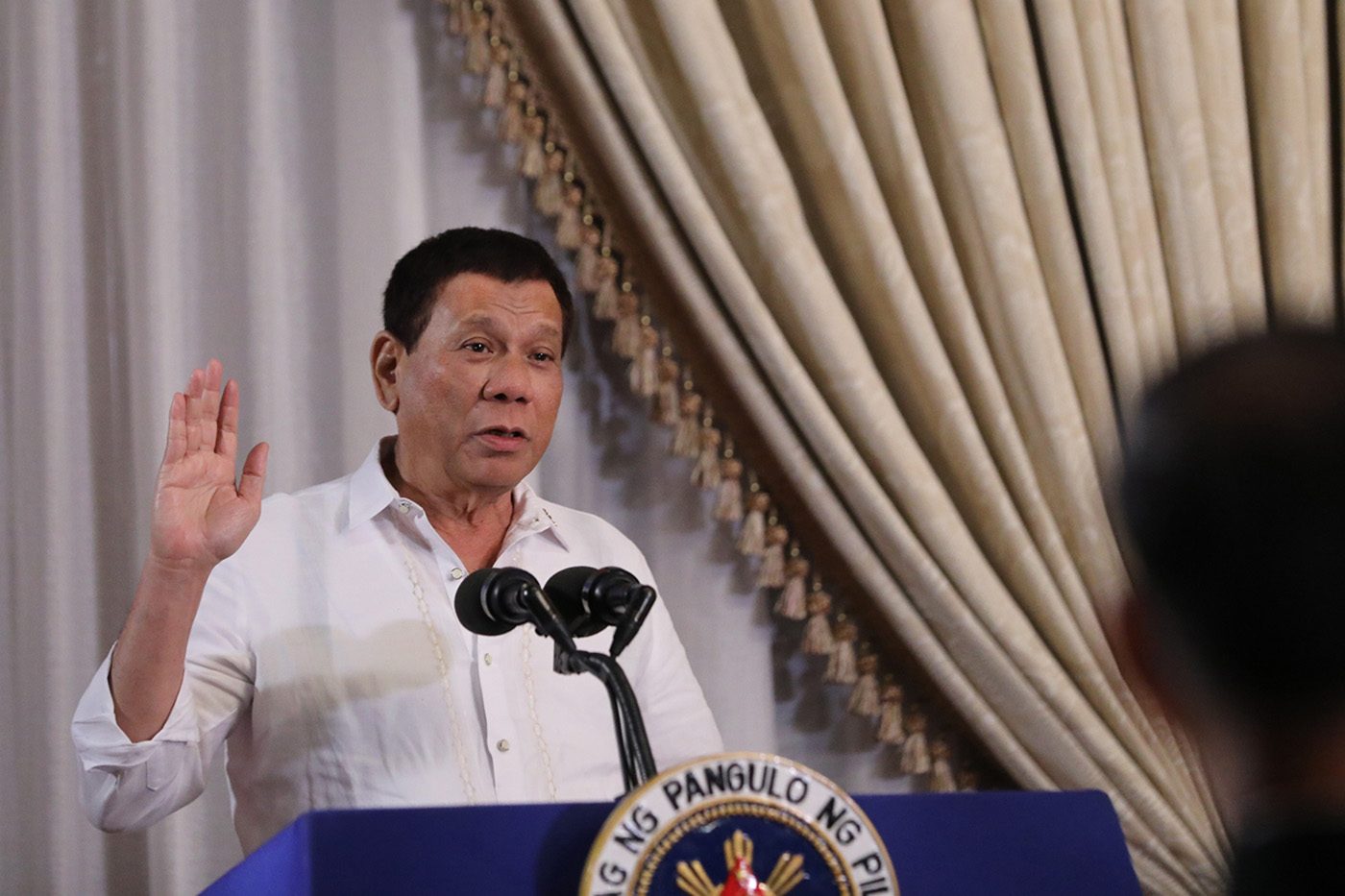SUMMARY
This is AI generated summarization, which may have errors. For context, always refer to the full article.

MANILA, Philippines – Malacañang said on Friday, October 5, that the discovery of a “growth” during an endoscopy performed on President Rodrigo Duterte had prompted the Chief Executive to say in a public event that he would update Filipinos if he had “cancer.”
Presidential Spokesman Harry Roque said in a news briefing on Friday that Duterte himself made the admission about his doctors’ discovery and recommendation during the military-police command conference on Thursday, October 4. (READ: Duterte confirms hospital visit: ‘I’ll tell you if it’s cancer’)
“I think endoscopy was recommended from his own words in the general command conference because they (doctors) wanted just to be sure that there was a growth and that they wanted to know more about the growth so I guess that’s the context why he said, ‘If it’s cancer, it’s cancer,'” Roque said in response to questions on Friday, October 5.
Asked if the “growth” referred to a tumor, Roque said, “Hindi ko po alam eh pero may tiningnan sa upper endoscopy (I don’t know but they looked at something through an upper endoscopy).”
Follow-up test
When Duterte addressed the 3rd Inflammatory Bowel Disease Clinical Forum of the Asia-Pacific Association of Gastroenterology (APAGE) in Cebu City on September 21, the President revealed that he had a colonoscopy and endoscopy the week before.
The medical procedure conducted on Wednesday, October 3, at Cardinal Santos Medical City in San Juan sought to take a closer look at the initial findings through an “upper endoscopy.”
“They wanted a more specific exam zeroing in on something…. Nakita sa first tests (It was spotted in the first tests),” said Roque.
In an upper endoscopy, a narrow tube with a video camera is used to look inside the upper digestive tract – the esophagus, stomach, and the beginning of the small intestine. An endoscopy is often used to diagnose esophageal cancer, according to the American Cancer Society website.
‘Duterte still deserves privacy’
Despite the discovery of the “growth,” Roque said Duterte’s health was still covered by rules on the confidentiality of health records.
The 1987 Constitution, he said, only mandates the President to divulge information on his or her health in the event of a “serious illness.”
“The fact that he went for a diagnostic test is not an information that the public has the right to know. And this is because a medical condition, unless it is serious, is covered by the right of privacy,” said Roque.
But the President himself beieved he was not sufferng from any serious disease, said his spokesman.
“If it’s not serious, we have no right to inquire into it. If it’s serious, he will be compelled to share it to the nation. Kung mayroon man siyang karamdaman (If he has an illness), he thinks it’s not out of the ordinary,” said Roque.
Roque, however, agreed that there may be a need to issue medical bulletins, even call forward Duterte’s doctor, to give assurances to the public about his health.
“If I’m still here next week then I will tell him perhaps we need to issue a medical bulletin, whether or not it’s serious. Perhaps we would need to bring in your physician because it’s the only way to stop all talk about your health,” said Roque, who told reporters he would review his planned Senate bid over the weekend. – Rappler.com
Add a comment
How does this make you feel?
There are no comments yet. Add your comment to start the conversation.